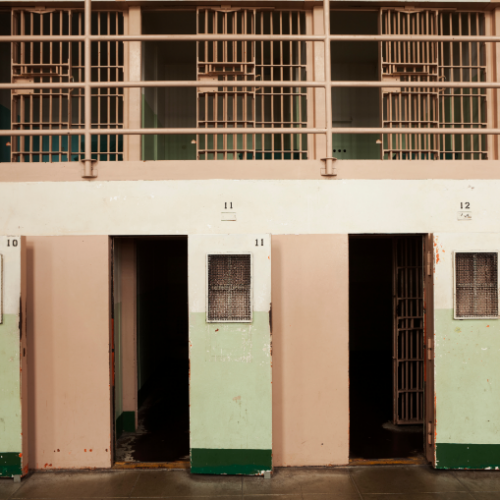On June 27, 2013, the Council of Governments Justice Center (CSG Justice Center), in partnership with the Urban Institute, hosted a field-wide training webinar about the recently expanded What Works in Reentry Clearinghouse. This online compendium now includes new information on substance abuse and family-based programs, and will soon release content on education programs.
More than 200 participants—including state and local policymakers, program managers, researchers, and practitioners—joined the webinar, which featured a discussion led by Urban Institute’s Dr. Nancy La Vigne on the Clearinghouse’s methodology and how these new sections can help programs improve their service-delivery model, prepare proposals, and compare outcomes.
Recent research indicates that certain therapeutic community treatment programs are effective for treating substance abuse needs, and that implementing gender-responsive services is especially important to women. Additionally, certain family-based programs were shown to help promote reductions in recidivism, underscoring the importance of family engagement in promoting successful reentry. These key findings can be valuable to policymakers, program administrators, and practitioners seeking to develop or improve their strategies for reducing recidivism.
Most recently, the CSG Justice Center and the Urban Institute have been working with agencies and experts in the field to ensure that the What Works in Reentry Clearinghouse is providing them with the information they need to promote public safety through improved outcomes for people reentering the community from incarceration.
If you would like to share insights and examples of how you have used the What Works in Reentry Clearinghouse through the National Reentry Resource Center Newsletter, please complete this survey. If you would like a private training on how to use the What Works in Reentry Clearinghouse contact Hank Rosen at hrosen@csg.org.
A positive school experience, where a child feels secure, is essential for their well-being. However, for many children…
Read More The Path to Statewide Community Crisis Response in New Jersey: A Community Advocate’s Perspective
Read More
The Path to Statewide Community Crisis Response in New Jersey: A Community Advocate’s Perspective
Read More
 Supporting Children of Incarcerated Parents: Reimagining School and Community Collaboration
Supporting Children of Incarcerated Parents: Reimagining School and Community Collaboration
A positive school experience, where a child feels secure, is essential for their well-being. However, for many children with incarcerated parents—one in 14 in the U.S.—school can feel far from safe due to stigma, trauma, and a lack of understanding.
Read More Bridging Communities and Correctional Systems: Q&A with CSG Justice Center Advisory Board Member Commissioner Nicholas Deml
Read More
Bridging Communities and Correctional Systems: Q&A with CSG Justice Center Advisory Board Member Commissioner Nicholas Deml
Read More
 Assigned to the Cloud Crew: The National Incarceration Association’s Hybrid Case Management for People with Behavioral Health Needs
Assigned to the Cloud Crew: The National Incarceration Association’s Hybrid Case Management for People with Behavioral Health Needs
When returning to their communities from criminal justice settings, people with behavioral health needs face barriers in accessing basic needs—including food, housing, employment, transportation, education, clothing, and substance use and mental health services—which increases their risk of experiencing a crisis.
Read More Meet the Medicaid and Corrections Policy Academy Mentor States
Meet the Medicaid and Corrections Policy Academy Mentor States
New Hampshire Department of Corrections Commissioner Helen Hanks presents at the Medicaid and Corrections Policy Academy in-person meeting.
Read More










